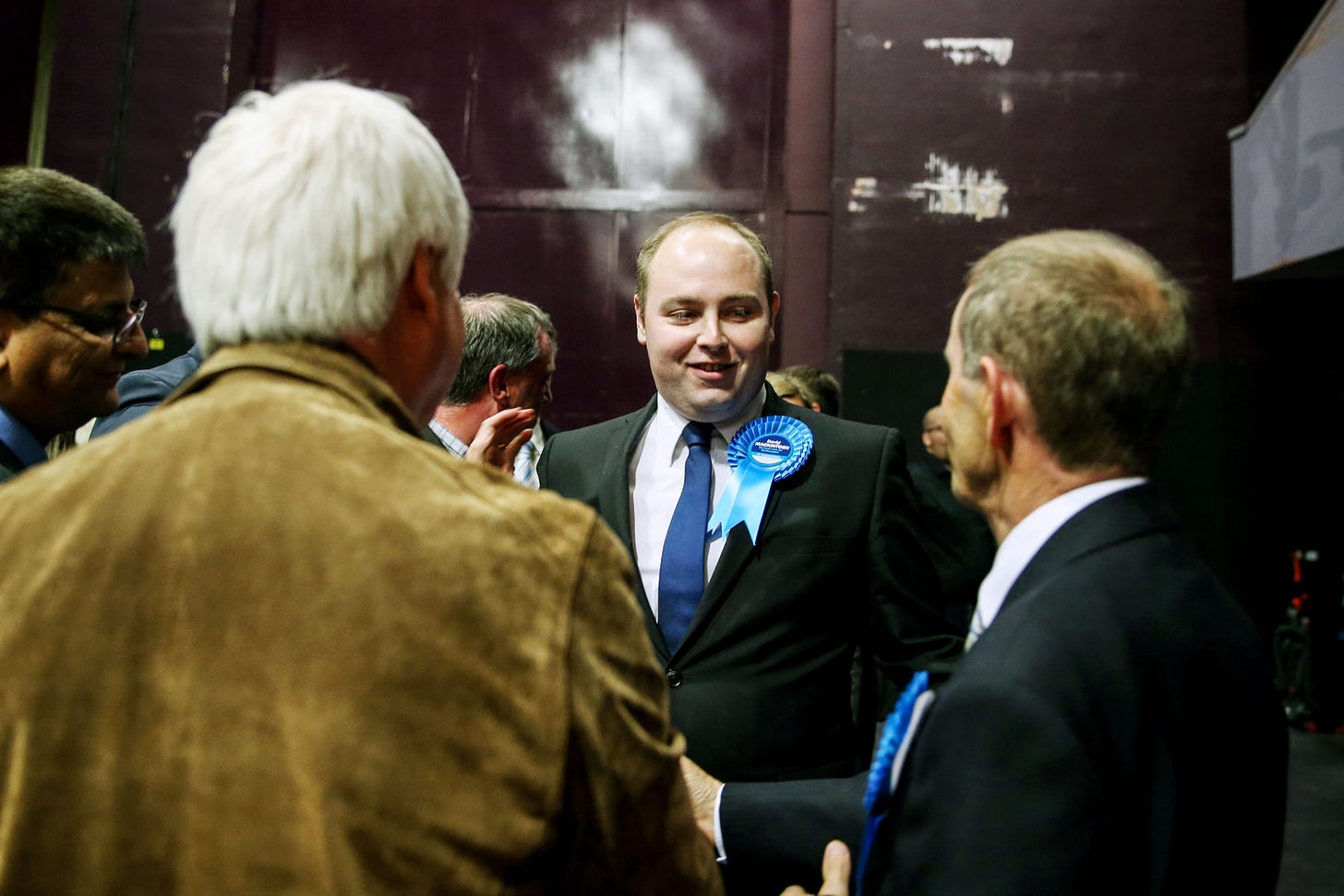Size of donations to accused former MP's political campaign met with ‘astonishment’ by colleague, trial hears
Former chairman of the Northampton South Conservative Association Michael Clarke, gave evidence from the witness box during the David Mackintosh trial this morning.
By Sarah Ward

The former chairman of a Northampton Conservative association has told a crown court trial he was ‘astonished’ when he first became aware of large donations made to a prospective MPs election campaign.
Michael Clarke, who was the chair of the Northampton South Conservative Association (NSCA) for a decade up until February 2014, said the donations that came into former MP David Mackintosh’s election fighting fund in mid 2014 were the largest received by the association in recent years and he was suspicious about where they came from.
Mr Clarke was speaking on the fourth day of an anticipated six week trial at Warwick Crown Court this morning.
Mackintosh, 44, of Station Court, Northampton, is co-accused of concealing nine donations valued at £39,000 to his election fund which were deposited with the NSCA between April and August 2014. The following year Mackintosh went on to win the general election and became the MP for the Northampton South constituency. He replaced Brian Binley, who the court heard Mackintosh had acted for as agent in the 2010 general election.
The former MP is jointly charged with friend Howard Grossman, 61, of Greenacres, Bushey, Middlesex, a friendship which the trial has heard grew through the former Northampton Borough Council’s loan of £12m for a new stand at Northampton Town Football Club, a development which Grossman was involved in.
Mackintosh was leader of the council at the time the loan was agreed by his cabinet in July 2013.
Prosecutor William Boyce KC asked Mr Clarke whether he became aware in 2014 that Mackintosh’s election fund had reached £36,000 in donations.
Mr Clarke, who had stood down as chair in February 2014 and was replaced in the role by Suresh Patel (a serving councillor on the West Northants unitary) said he had and his reaction was ‘astonishment’.
Mr Boyce asked Mr Clarke:
“Did there come a time when at the offices of the association at Billing Road, you together with Mr Patel spoke to Mr Mackintosh about three donations of £10,000 which contributed part of the £36,000?”
Mr Clarke said yes, the three had met (saying later during his evidence that it had been an informal meeting and minutes were not taken).
He told the jury:
“Mr Mackintosh assured us the donations were from people whom he had met and got to know in the course of his work for Mr Pickles and they were people who wanted to show their support for him as an individual, as a bright new spark in the party. As a first time candidate.”
(Mr Pickles is Eric Pickles, the former Tory MP and cabinet minister. The court heard Mackintosh had worked for him).
The former local party chairman said due to the amount of the donations they would have had to be checked by Tory central office. The trial heard yesterday that there are limits on political donations imposed by the electoral commission and donations of £10,000 would have met the registration threshold.
He said:
“Because of the size of the donations, before we accepted them they had to be referred to the compliance department at CCHQ who would run a full rule over the donations and examine them before they gave us a decision.”
Asked about a series of six smaller £1,500 donations made to the campaign during the summer of 2014 , Mr Clarke said he had been made aware that Mackintosh had been to India with the Conservative Friends of India and that’s where he understood the connections had been made. He said he could not recall whether the smaller donations were discussed at the meeting about the larger contributions.
Mackintosh’s defence counsel Cairns Nelson KC cross-examined Mr Clarke and suggested he was not a fan of Mr Mackintosh.
He said:
“I think it is fair to say, if we are candid with each other Mr Clarke, that you were disappointed when David Mackintosh was selected as the political candidate for the seat. Would you agree with that?”
Mr Clarke replied: “No. I was neutral as the chairman.”
Mr Nelson KC then suggested Mr Clarke had preferred another candidate, which Mr Clarke disagreed with.
“You certainly disliked some of his politics. Is that true?
Mr Clarke responded: “No - that is not correct at all. We rarely discussed politics.”
Mr Nelson KC went on to say that Mackintosh was a Remainer in the EU referendum campaign, while Clarke was a Brexit supporter and he thought Mackintosh’s politics were too liberal.
He said Mr Clarke wanted ‘to get rid of him’. Again Clarke disagreed and said he only thought that Mackintosh should go, after the news about the football club loan and donations came to light.
Mr Clarke was the only witness who gave evidence in the trial today, which was brought to an early close.
Both defendants deny the charges against them which are being brought under the political parties, elections and referendum act 2000.
The trial, which is being heard by The Honourable Mrs Justice Jennifer Eady, continues tomorrow.
Comments have been turned off as this is a live trial.
